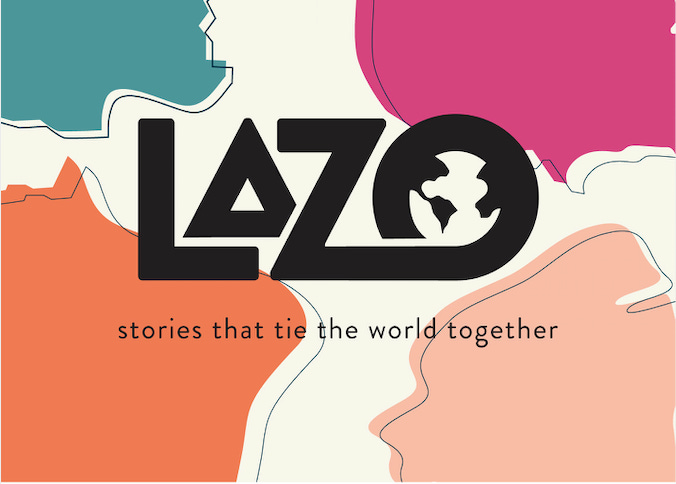The men fighting the Taliban.
Hello, all! Cristina here. This week, I wrote an article for National Journal about the men trying to defeat the Taliban and their outreach to Washington. I encourage you to read the piece if you have access, maybe through a library, university, or your employer.
While reporting out the story, I spoke with Ahmad Wali Massoud, the brother of the late Ahmad Shah Massoud, who fought the Soviet forces in Afghanistan and the Taliban before his assassination in 2001. Wali Massoud is also the uncle of the current leader of the Afghan National Resistance Front, who is also named Ahmad Massoud (yes, I know this is confusing!).
I also spoke with Abdul Latif Pedram, a prominent politician and the leader of Afghanistan’s National Congress Party, who is in talks with Massoud about the formation of a resistance government based either in Tajikistan or Northern Afghanistan.
Much of our conversations didn't make it into my recent article on the opposition's relationship to Washington. For example, we discussed aspirations for Afghan federalism, their perceptions of former President Ashraf Ghani, and the Taliban's support for extremists. I will include some of those conversations here in this newsletter.
BUT (there's always a but, isn't there?), this content is only for paid subscribers, so you will have to sign up for $2 a month or $22 a year here if you want access to it. It will be sent out tomorrow at 9:00 am ET.
Upgrade to a premium subscription by Clicking Here.
What I'm writing:
• This week, I wrote about the diverse coalition of ethnic leaders and resistance fighters crisscrossing the border between Tajikistan and Northern Afghanistan, plotting to retake the country from the Taliban. They want Washington to back them up, and they've found a few vocal allies in Congress.
What I'm reading:

• Hundreds of thousands of protesters have taken to the streets of Polish cities amid fears of a Polexit from the European Union, the BBC reports. The protests are happening after Poland’s Constitutional Tribunal, dominated by supporters of the ruling Law and Justice party (PiS), ruled that E.U. legal principles were “incompatible” with the Polish constitution.
• After rejecting the Court of Justice of the European Union's authority, Poland, together with Hungary, asked the court to strike down the E.U.’s rule-of-law mechanism that allows Brussels to cut off funds, Politico Europe reports.
• Poland plans to spend over $404 million on a border wall to stem the flow of migrants crossing from Belarus, according to a draft bill.
• Poland’s parliament passed a law allowing border guards to expel migrants illegally crossing the border immediately. The new law could violate international law, which requires that anyone seeking international protection is given access to the asylum process, the BBC reports.
• Slovenia's Prime Minister Janez Janša (leader of the country which currently holds the rotating presidency of the Council of the EU) denounced 226 MEPs as “Soros puppets in the EU parliament," via a Tweet that has since been deleted. The Netherlands summonsed the Slovenian ambassador in response to said tweet, which is still available as a screenshot here.
• Janša’s tweet came as a delegation of MEPs visited Slovenia to examine the state of the rule of law and media freedom in the country, Politico Europe reports.
• The Czech Republic's winning coalition, Spolu (Together), is a liberal-conservative three-party coalition. The Guardian reports that Spolu won 71 seats, while its partner took 37 seats. Czech PM Andrej Babiš's party ANO lost narrowly but still had the highest vote share.
• The New York Times profiles Éric Zemmour, a far-right author and television pundit who touts himself as a defender of France’s Christian civilization. Zemmour, who is Jewish, experienced a rise in popularity over the last weeks despite not having declared his candidacy for France’s presidential elections next year.
• European Commission President Ursula von der Leyen and European Council President Charles Michel traveled to Kyiv for the 23rd EU-Ukraine summit. The EU was expected to push for anti-corruption efforts and judicial reform.
• Russia and the U.S. both lifted targeted sanctions to allow the U.S. Under Secretary of State for Political Affairs, Victoria Nuland, to visit Moscow for meetings with Russian officials, Reuters reports.
• The Collective Security Treaty Organisation (CSTO) – which includes Tajikistan, Kyrgyzstan, Kazakhstan, Armenia, and Belarus – will hold military drills near the Afghan border in Tajikistan from October 22 to 23, according to Russia's RIA news agency.
• Armenia told judges at the World Court in The Hague that Azerbaijan promotes ethnic hatred against Armenians. Armenia’s assertions are part of a case filed at the World Court last month that claims Azerbaijan violated the International Convention on the Elimination of All Forms of Racial Discrimination, to which both Armenia and Azerbaijan are signatories.
• Tens of thousands of Georgians rallied in Tbilisi to demand the release of Mikheil (Misha) Saakashvili, the ex-president and opposition leader, Al Jazeera reports.
• More than 3 million Afghan refugees are trying to reach Iran and Pakistan. The displacement of ethnic and religious minorities in Afghanistan may escalate tensions to a critical level, said the head of the Collective Security Treaty Organisation joint staff.
• Afghan refugees claim they are being beaten, harassed, and turned back by Turkish border forces. Violent “pushbacks,” including the torture of refugees, have surged in eastern Turkey in the months since the Taliban took over Afghanistan, according to an investigation by the Guardian.
• Leaders and advocacy organizations from Albanian, Bosnian, and Montenegrin-American communities called on the U.S. to commit to a stronger presence in the Western Balkans region amid the “growing militancy of the government of Serbia."
• Armed clashes broke out between sectarian militias in neighborhoods of Lebanon's capital Beirut, killing at least six people and wounding at least 30 more, the New York Times reports.
• Talks between Indian and Chinese military commanders to solve a standoff in the disputed Ladakh region of the Himalayan border have broken down, Reuters reports.
• Myanmar’s former president, Win Myint, testified that the military tried to force him to give up his power mere hours before the February 1 coup and threatened him with serious harm if he refused, Reuters reports.
• Myanmar’s military junta will not allow a special envoy from the Association of Southeast Asian Nations (ASEAN) to meet deposed civilian leader Aung San Suu Kyi, a military spokesperson said.
• The criminal trial of Lev Parnas, a former associate of Rudy Giuliani, began in a New York federal court. Parnas is accused of conspiring with Andrey Kukushkin, a co-defendant in the case, to make more than $25,000 a year in political contributions from Russian businessman Andrey Muraviev, the Wall Street Journal reports.
• The U.S. was reelected to the United Nations Human Rights Council for the first time after withdrawing under former president Trump in 2018 due to alleged “chronic bias” against Israel, Al Jazeera reports.
• In Eswatini – the country was formerly known as Swaziland – the military was deployed to quash pro-democracy school protests. The country is Africa’s last absolute monarchy, Reuters reports.
Upgrade to a premium subscription by Clicking Here.
You can also contact me for any reason at all by writing to c.maza@protonmail.com.





